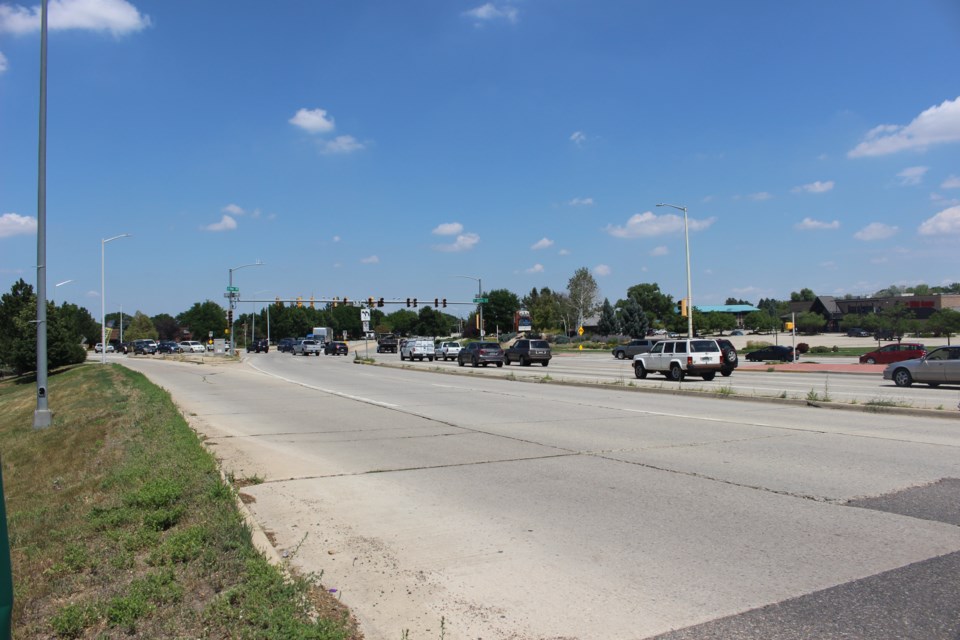Colorado Highway 119, known as Diagonal Highway, is the second most traveled corridor in Boulder County — and one of the most dangerous.
With the highway connecting Boulder and Longmont expected to see a 25% increase in traffic by 2040, the multi-modal corridor is being envisioned as a way to address safety and growing demand. Over 80 people tuned in to a virtual town hall with the Boulder County commissioners Thursday to hear about the project, ask questions and provide feedback.
The overall project cost is estimated at $315 million in total, with about $104 million secured so far. The plan includes things like safety improvements to the highway intersections, the installation of a commuter bikeway on the median, a new Bus Rapid Transit service on the corridor and more.
“When we talk about the Colorado 119 corridor, it really is all designed to give people options and choices,” said Kathleen Bracke, deputy director of transportation planning for Boulder County. “So people can choose to ride transit or use the commuter bikeway or drive along the corridor and have safe, reliable, convenient transit choices.”
Bracke emphasized that the improvements are being looked at in an integrated manner. Safety for all modes of transportation is the foundation for the project, she explained, with an incorporation of features like improved signaling, signing, striping and lighting.
Other parts of the overarching project include improvements of the Boulder and Longmont intersections on either end of the highway.
For transit, she highlighted the use of queue bypass lanes that will help buses jump the traffic at a light stop to help speed up travel times for bus riders and contribute to reliability.
There were some questions about how this project would work with the future plans that could bring a rail up to Longmont. Bracke said while the plan itself doesn’t add any rail lines, it was designed with those future stops in mind if and when that project happens.
The bike lane will be separated from traffic and connected to commuter stops. The design also plans to utilize underpasses so that bikers don’t have to cross traffic.
During the town hall portion of the meeting, one commenter wondered if the project improvements for drivers would create induced demand and actually increase traffic along the Diagonal Highway. Another called the project fundamentally misguided, arguing that the biking and transit integrations are wishful thinking that will not see much use.
The commissioners gave some closing remarks responding to these and other comments.
“This project just like any other project in Boulder County may or may not affect — may or may not support — the daily needs of residents,” County Commissioner Marta Loachamin said. “I personally feel like it’s really important for folks to feel and know how the numbers are working, the funding, the transportation, costs and when there’s skepticism or people feel like they’re being misguided.”
The county plans to present a preliminary plan in June for public feedback with design finalization sometime next year. The hope is that construction will begin in 2024, though that depends on financing.
Learn more about the overall project at commutingsolutions.org/regional-planning/state-highway-119/, where you can also sign up for email updates.



